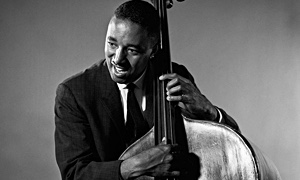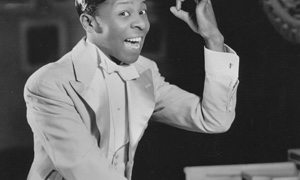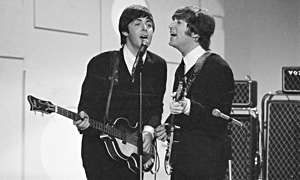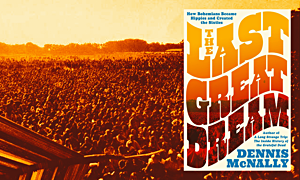Home » Jazz Articles » Book Review » The Jazz Fiction Anthology
The Jazz Fiction Anthology
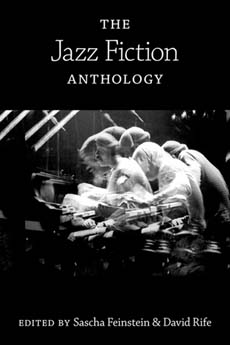 The Jazz Fiction Anthology
The Jazz Fiction AnthologySascha Feinstein and David Rife, Editors
Softcover; 500 pages
ISBN: 978-0-253-22137-7
Publisher
2009
This fine anthology of jazz fiction is a treasure trove of stories and characters that illuminate the multicolored world of jazz. The editors—Sascha Feinstein and David Rife—are to be commended for their impeccable judgment in selecting the short stories and two novellas that comprise the collection. In the introduction, the editors state their ambitious aim: "to present the most definitive selection [of jazz fiction] ever published." And they succeed beautifully: the book is a generous five hundred pages that includes an impressive range of authors and stories, including writers famous and not so famous, writers black, white, male, female, dead, alive, French, Argentinean, Czech, Kiwi, a range as diverse as jazz itself. And like jazz, the stories range from early twenties to right now, giving a comprehensive view of the history of this music.
One of the choices that editors of a jazz fiction anthology have to make is whether to include, as the editors say, "fiction about jazz versus jazz-like prose." The editors wisely include both, stating, "We don't believe one point of view should negate the other." And anyway, the two often overlap: writing about jazz, particularly when describing the music, is more often than not jazz-like. The famous quote, of course, is that writing about music is like dancing about architecture (a quote attributed to many people, including Gertrude Stein and

Elvis Costello
vocalsb.1954
"The notes of the horns bursting like bright metallic bubbles against the sky" (Ralph Ellison, "A Coupla Scalped Indians").
"A goddamn compost heap breeding near the stove, garbage gardens on the grill" (Toni Cade Bambera, "Medley").
"I played a four-bar intro, notes slipping effortlessly off my fingers (long-stemmed flowers trailing from a crystal vase)" (Don Asher, "The Barrier").
"The sun comin' pale and weak down the airshaft and crawlin' into his funky room on its weak knees" (Sam Greenlee, "Blues for Little Prez").
And of course the great master James Baldwin, in perhaps the most famous jazz story ever written, "Sonny's Blues": "For, while the tale of how we suffer, and how we are delighted, and how we may triumph is never new, it always must be heard. There isn't any other tale to tell, it's the only light we've got in all this darkness."
The heart of the anthology is, naturally, jazz musicians. It's a fact that jazz musicians are often unusual, colorful people—think of


Bill Evans
piano1929 - 1980

Wayne Shorter
saxophone1933 - 2023
Another interesting aspect of the stories is that they explore the full range of musicians' success: coming up, on top, going down, coming back, barely hanging on, and completely defeated. Characters include a clarinetist who has a family and teaches in public schools; a tenor man plucked from obscurity by academics; a pianist on the edge of success who resorts to demeaning schmoozing; Baldwin's Sonny, who stopped playing due to personal excess; and an alto player at the top (based on

Charlie Parker
saxophone, alto1920 - 1955
Another joy of the anthology is how it brings to life the long-lost worlds of old jazz clubs. Many of these writers saw musicians and scenes that the reader never will, but through these stories these worlds comes to life once more. It's a great treat to read Amiri Baraka's short story "Norman's Date," which takes place in the legendary hotspots the Five Spot and the Cedar Bar; Eudora Welty's "Powerhouse," based on her experience seeing

Fats Waller
piano1904 - 1943

Buddy Bolden
cornet1877 - 1931
Another theme that is thoroughly explored in several stories is the relationship between black musicians and their white fans. There's Terry Southern's deeply disquieting, "You're Too Hip, Baby," where a black jazz musician and his girlfriend eventually see through a sycophantic white fan. Equally disturbing is "A Really Good Jazz Piano" by Richard Yates (best-known these days as the author of Revolutionary Road), where a white fan is so entranced by his idea of who a black musician should be that he is unable to see the musician as a human being. And Langston Hughes' "The Blues I'm Playing" concerns a white patroness trying to mold her black protедgед, who manages to carefully slip away from her grasp. Certainly the most full-bodied treatment of this theme is found in the anthology's excellent novellas. David Huddle's "Tenor man" shows how people can avoid their own issues by living vicariously through artists, and he also explores the comic futility of academics trying to get inside an artist's head and define the indefinable. Julio Cortazar's brilliant novella "The Pursuer" describes a biographer's complicated relationship with his subject, a self-imploding genius based on Charlie Parker. The story is a deep exploration of the attraction geniuses hold for the rest of us, full of piercing insights such as, "The hard thing is to circle around him without losing your distance, like a good satellite, like a good critic."
The editors have arranged the stories alphabetically by author, but of course one of the joys of an anthology is that the reader can jump around as they wish. No matter how you read the stories in this excellent collection, they work together beautifully, the themes bouncing off each other and echoing throughout. The stories are rounded out by a first-rate introduction and comprehensive author biographies, which give the reader a place to start if they want to delve further into any of these writers' works.
The Jazz Fiction Anthology is sure to stand for years to come as a definitive work, a place for readers to enter and enjoy, as well as a place where those wishing to write about jazz can learn the history and subtlety of the craft. One of the wonderful things about art is how it breeds more art: this anthology shows how music can inspire writing, and the collection itself is bound to give birth to even more art in the future.
Tags
The Jazz Fiction Anthology
Book Reviews
Florence Wetzel
United States
Elvis Costello
Thelonious Monk
Bill Evans
Wayne Shorter
Charlie Parker
Fats Waller
Buddy Bolden
Comments
PREVIOUS / NEXT
Support All About Jazz
 All About Jazz has been a pillar of jazz since 1995, championing it as an art form and, more importantly, supporting the musicians who make it. Our enduring commitment has made "AAJ" one of the most culturally important websites of its kind, read by hundreds of thousands of fans, musicians and industry figures every month.
All About Jazz has been a pillar of jazz since 1995, championing it as an art form and, more importantly, supporting the musicians who make it. Our enduring commitment has made "AAJ" one of the most culturally important websites of its kind, read by hundreds of thousands of fans, musicians and industry figures every month.



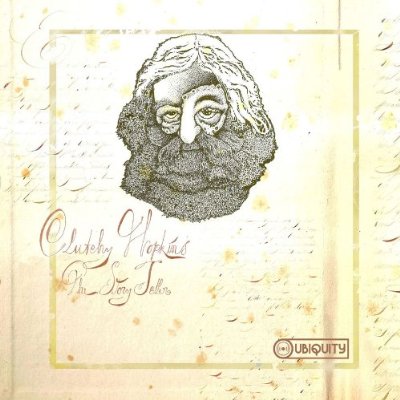



 Buy Now
Buy Now




